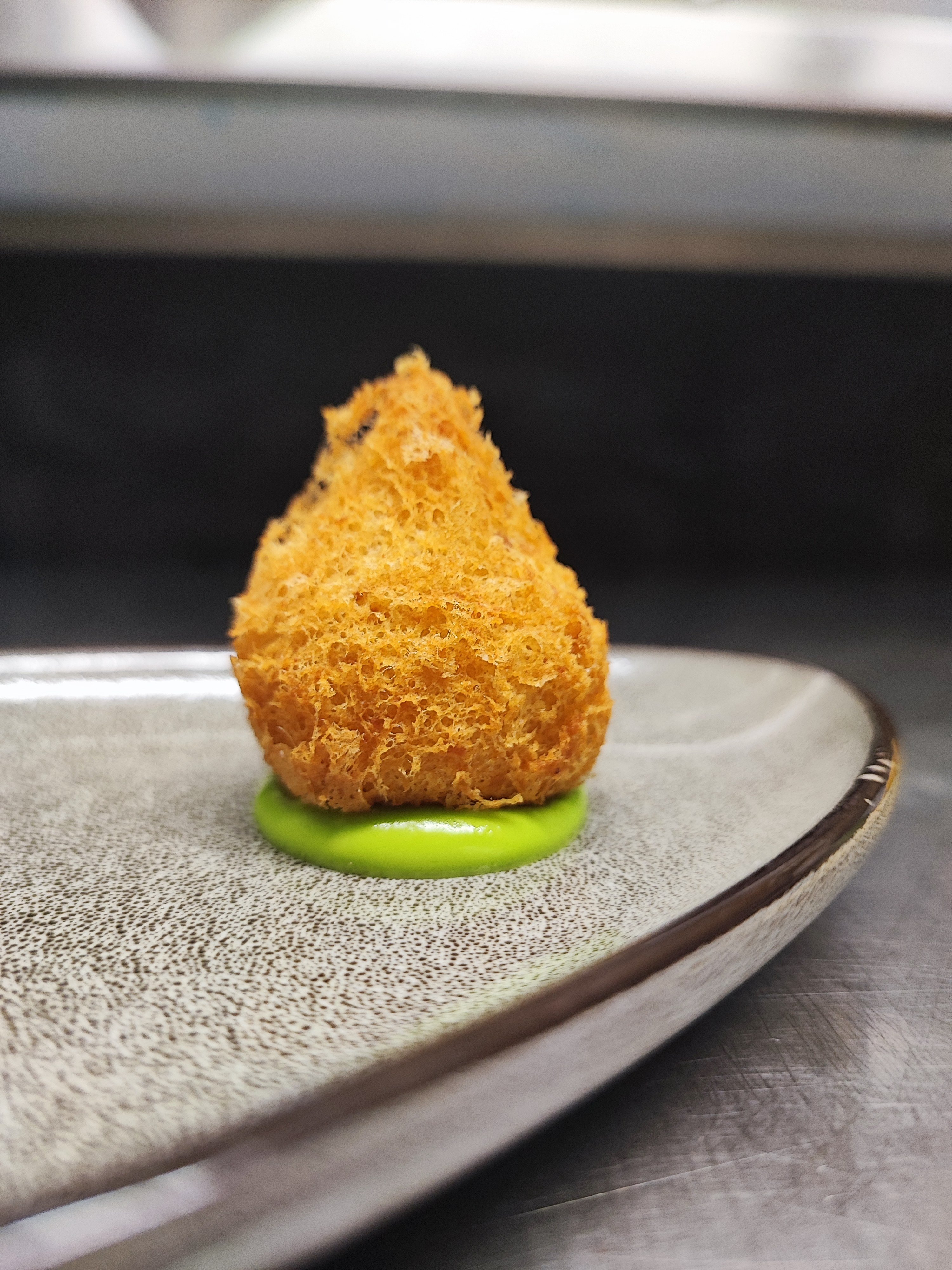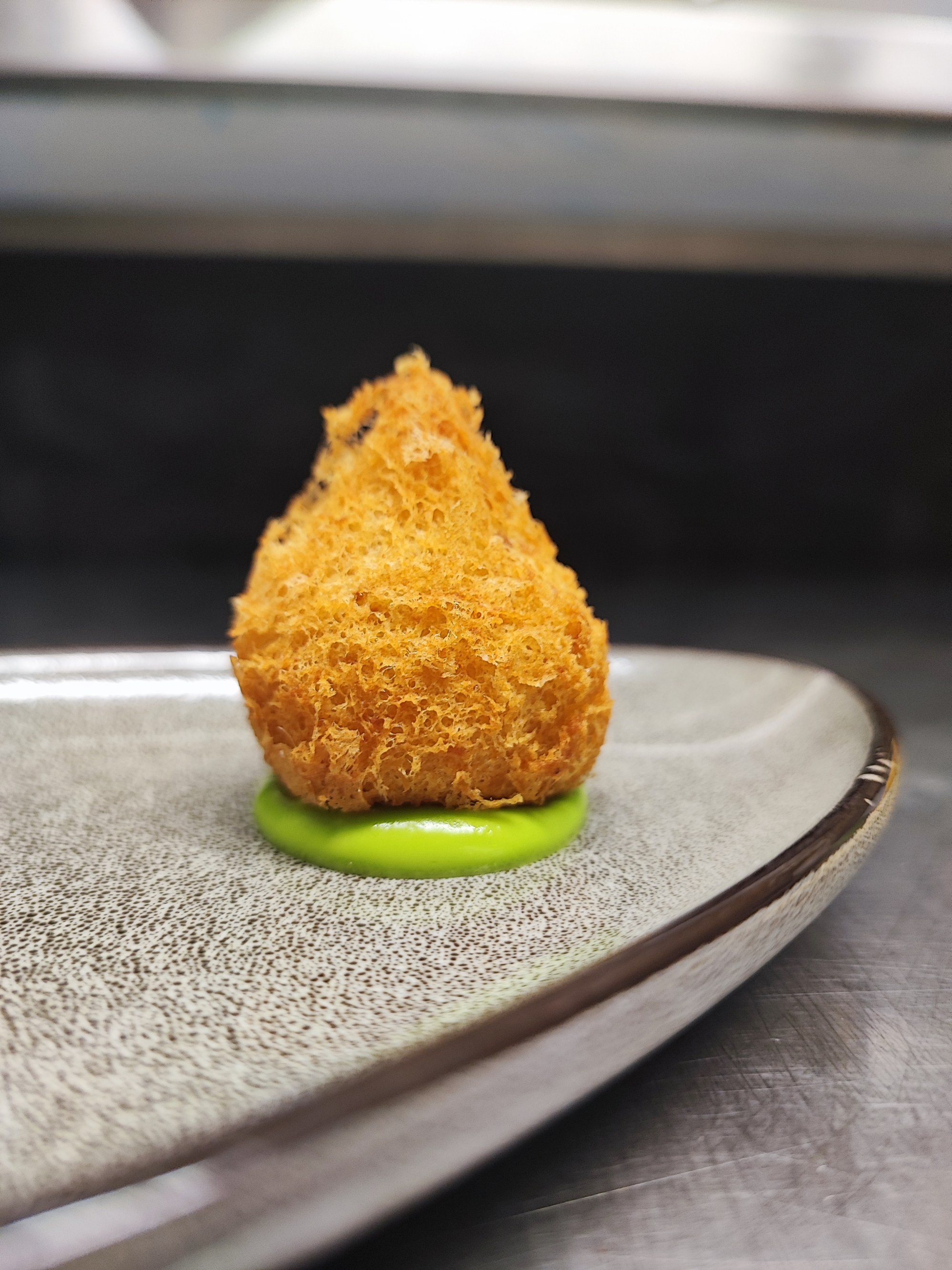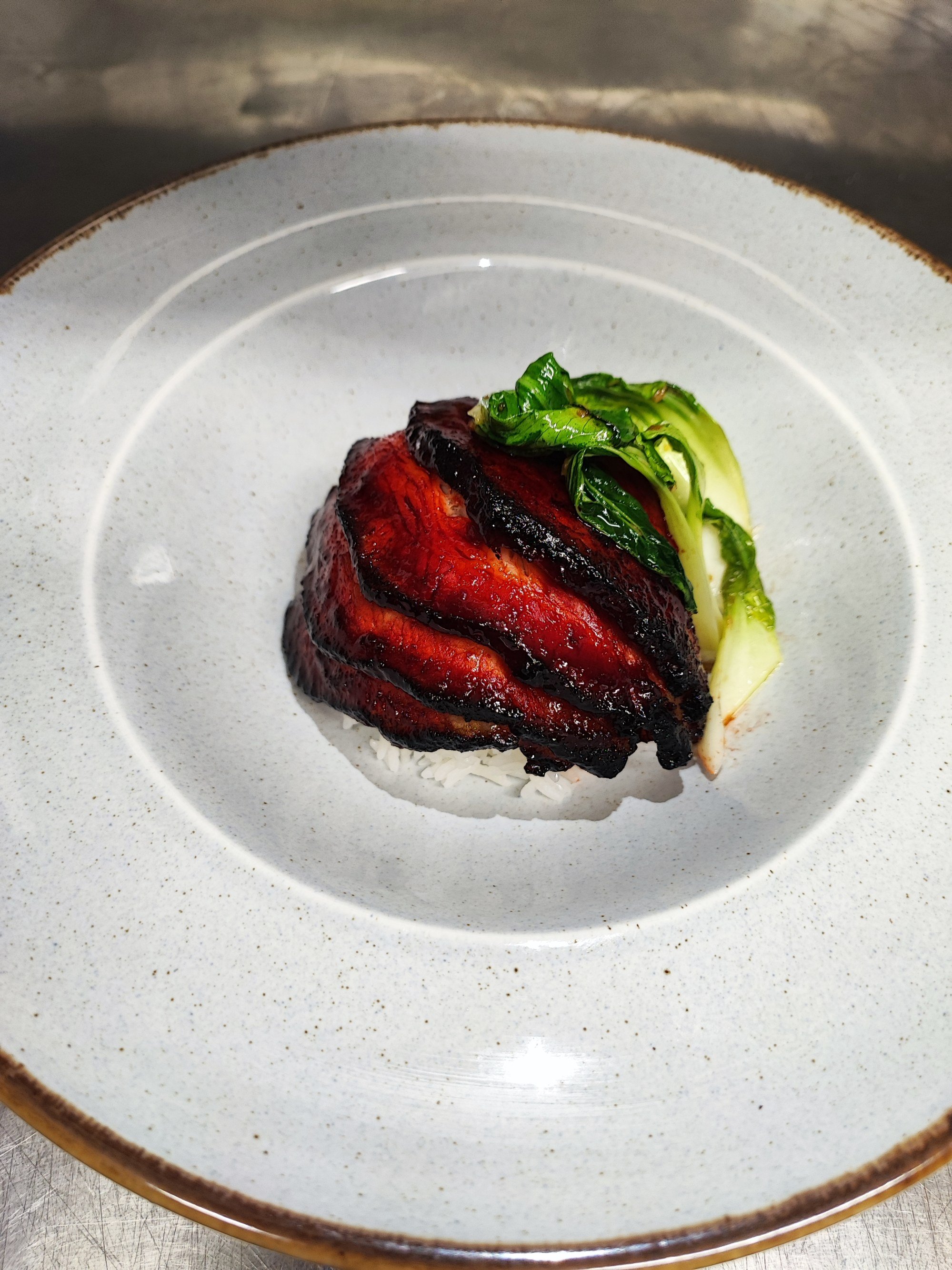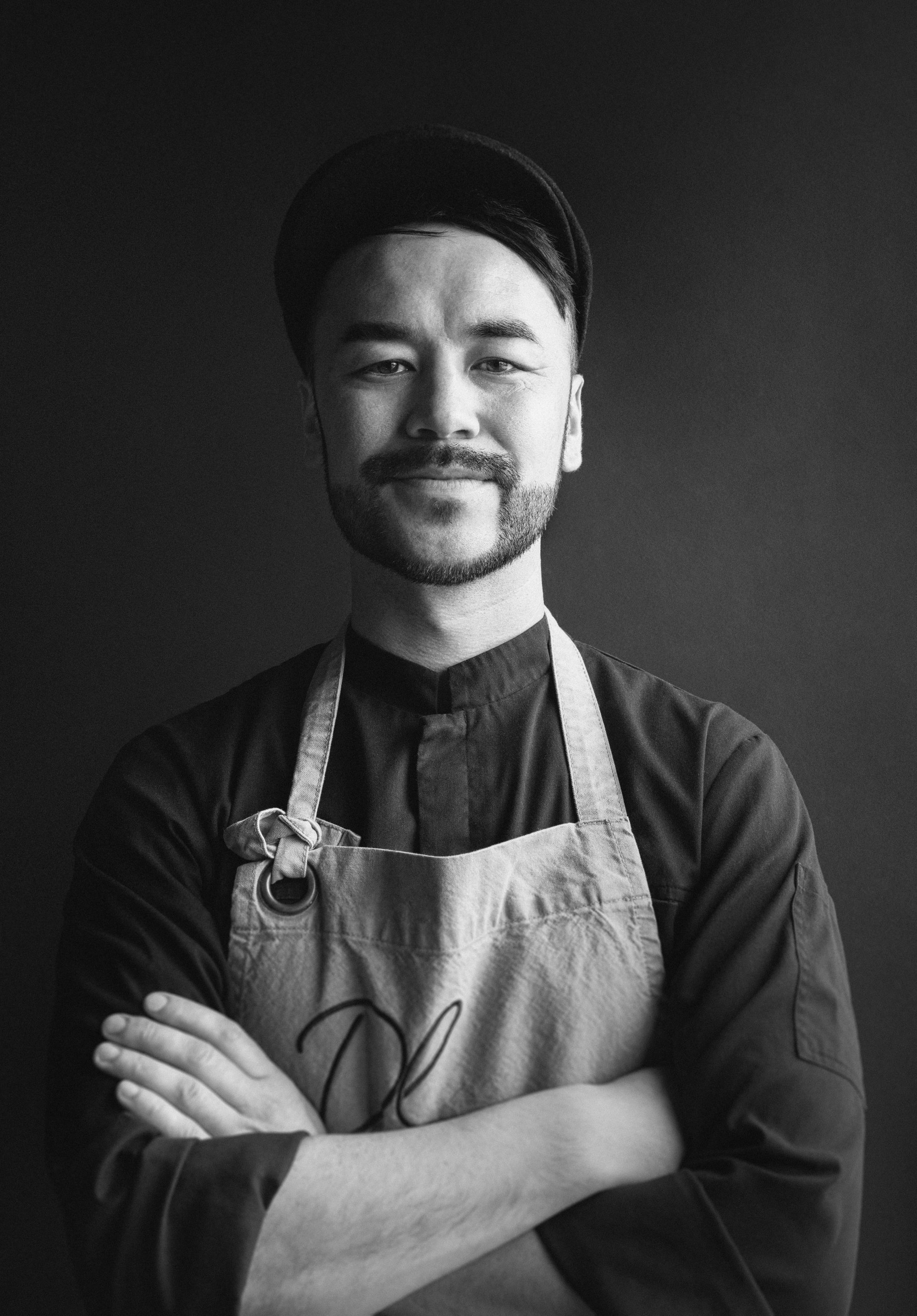
- With a date upcoming in Hong Kong, Daniel Lee, winner of MasterChef: The Professionals in 2021, talks about serving authentic Chinese street food to UK diners
After chef Daniel Lee won Britain’s acclaimed reality-television cooking contest MasterChef: The Professionals in 2021, job offers came flooding in. But one by one he turned them down – even the chance for his name to be above the door at a prestigious London address: “Dan Lee at Park Lane”.
Instead, the half-Chinese, half-English-Irish chef took up a residency at the laid-back Hockley Social Club in Birmingham, in the West Midlands, the city of his birth. There, he cooks his own take on Asian street food for as little as £6 (US$7.30) per dish.
Lee’s decision is surprising considering his training in classical French culinary techniques at University College Birmingham and his experience working at fine-dining hotspots around the world.
He was senior sous chef at Table65, in Singapore, where he helped the modern European restaurant win its first Michelin star in 2019 within a year of opening, and did stints at Bangkok’s acclaimed Nahm, and London’s two-Michelin-star Ikoyi.

But Lee, inspired by hawker centres and street-food stalls in East Asia, is on a mission: he wants to democratise top quality food in Britain.
“In Asia, you have such amazing food and it’s so affordable. Street food in the UK is usually deep fried and unhealthy, all loaded fries and burgers, and still not that cheap,” he says. “I want to make very good food accessible, especially in the current economic climate.”
Israeli Zen chef shares her food philosophy before Hong Kong monastery visit
“I think street food will appeal to diners here, and it suits me and my style of food,” he says.
It may be street food, but there is no cutting corners when it comes to preparation. He makes all his own oils, sauces and emulsions, and makes use of the hi-tech equipment more often seen in haute cuisine kitchens, including sous-vide baths and Thermomixers.
The dishes get a “fine-dining treatment, just without the tweezers”, he says.
His approach is proving wildly popular and Brummies (the colloquial term for Birmingham natives) can’t get enough: because of its overwhelming success, the four-month residency has now become a permanent fixture, called Dai Pai Dong by Dan Lee.
In December, he will also take over another venue, with outside space that can be used for weddings and events where he will offer a similar culinary concept.

Lee also does festival pop-ups and fine-dining restaurant collaborations, and cooks at charity dinners and for private bookings via an app called Cheffie, in which he has equity and for which he is a brand ambassador.
He gives talks at culinary colleges to inspire young chefs, showing them there are different sides to the hospitality industry.
He is now in talks to expand his Dai Pai Dong brand across Birmingham. The High Speed 2 (HS2) railway project linking London and Birmingham has spurred fresh investment in the city and, inspired by housing complexes in Hong Kong and Singapore, developers are looking to integrate hospitality into new residential buildings.
Lee’s vision is to set up affordable ground-floor restaurants serving the local community. He hopes eventually to take his brand nationwide.
Once his street-food empire is running smoothly, he and his behind-the-scenes business partner may then consider opening a more refined restaurant, with premium ingredients and elevated dishes.

He aims to be self-supporting rather than beholden to investors, and for the street-food business to relieve the heavy pressure of keeping a fine-dining establishment running at profit. “I want complete control so I can stay true to my philosophies,” he says.
“It’s a side of Hong Kong most tourists don’t get to see,” he says.
He will also be cooking at a one-night pop-up at The Ritz-Carlton Hong Kong on November 9. The four- or five-course tasting menu at Ozone will showcase his use of European cooking techniques on dishes heavily influenced by Asian flavours.
Courses will include a ceviche-style dish of sea bream, cured with salt, sugar and Sichuan pepper and served with a Thai-style nahm jim dipping sauce.

Then there will be the “completely rogue” dish he served on MasterChef, which reinterprets a Caprese salad: set tomato consommé, basil foam and mozzarella mousse, with cured and pickled tomatoes and green Sichuan peppers.
He will also cook soy-cured wagyu beef with champ (spring onion, mashed potato and potato purée), pickled shiitake, shiitake ketchup and caviar.
“It’s beef, potatoes and vegetables, essentially – a quintessential British dish – but it so easily links with other parts of the world,” he says.
He wants to introduce Cantonese flavours – even MSG – to New Yorkers
“A lot of my food philosophy is based on looking at how different dishes and cultures fit together.
“It’s just about treating each dish with respect – I design my menus by breaking down, say, two dishes I’m thinking of putting together, understanding why those dishes started and how they came about, and then rebuilding them while paying respect to tradition.”
Lee, now 31, has always straddled the worlds of Eastern and Western cuisine and, growing up, his meals veered from his mother’s cottage pies on weekdays to dumplings and stir-fries at the weekend at the Chinese takeaway first run by his grandparents, then his aunt.
I didn’t want to be just another chef, I didn’t want to bend the knee because someone might not like the way it looksDaniel Lee, chef
He and his sister faced prejudice growing up as the only East Asians in their school; while today there is nothing surprising about non-Chinese people going for dim sum on Sundays, this was less the case two decades ago and Lee says he thought of Chinese food as something to be eaten only with family.
Still today he finds diners are not comfortable with certain traditional Cantonese dishes, such as steamed fish served whole – head, eyes and all – but he uses it as an occasion to emphasise why the dish is served that way, “respecting the animal, using all of the ingredient so there’s no waste”.
Even on MasterChef, there was some trepidation about him cooking dishes considered less palatable for Western diners: when the production team learned Lee was planning to serve chicken feet on the chef’s table, they asked him if he was sure British television was the right audience.
But Lee was determined and served deboned (a “terrible idea” in the time-limited contest, he says, in hindsight) chicken feet with a fermented black bean sauce. He went on to win the competition, with glowing reviews from the judges, including chef Gordon Ramsay.
“I didn’t want to be just another chef, I didn’t want to bend the knee because someone might not like the way it looks,” says Lee. “At school, I was the Chinese one, and when I moved to Singapore they saw me as the white one.”

“It’s not about fitting in, for me. Food is about making connections and I’m always interested in anyone’s culture.
“After people saw the chicken feet on the show, they now want to try them […] although my mother still doesn’t want to,” adds Lee with a chuckle.
Despite authentic Chinese food now being far better known, Lee says there is still a long way to go.
“For most people in the UK, Chinese food is a takeaway, it’s unhealthy and greasy. I myself love a crispy shredded beef on a Friday night, there’s always a place for that, but I want to show that there’s much more to Asian food,” says Lee.
“I see us taking the right steps for the outdated image of Chinese food here to be eradicated.”

